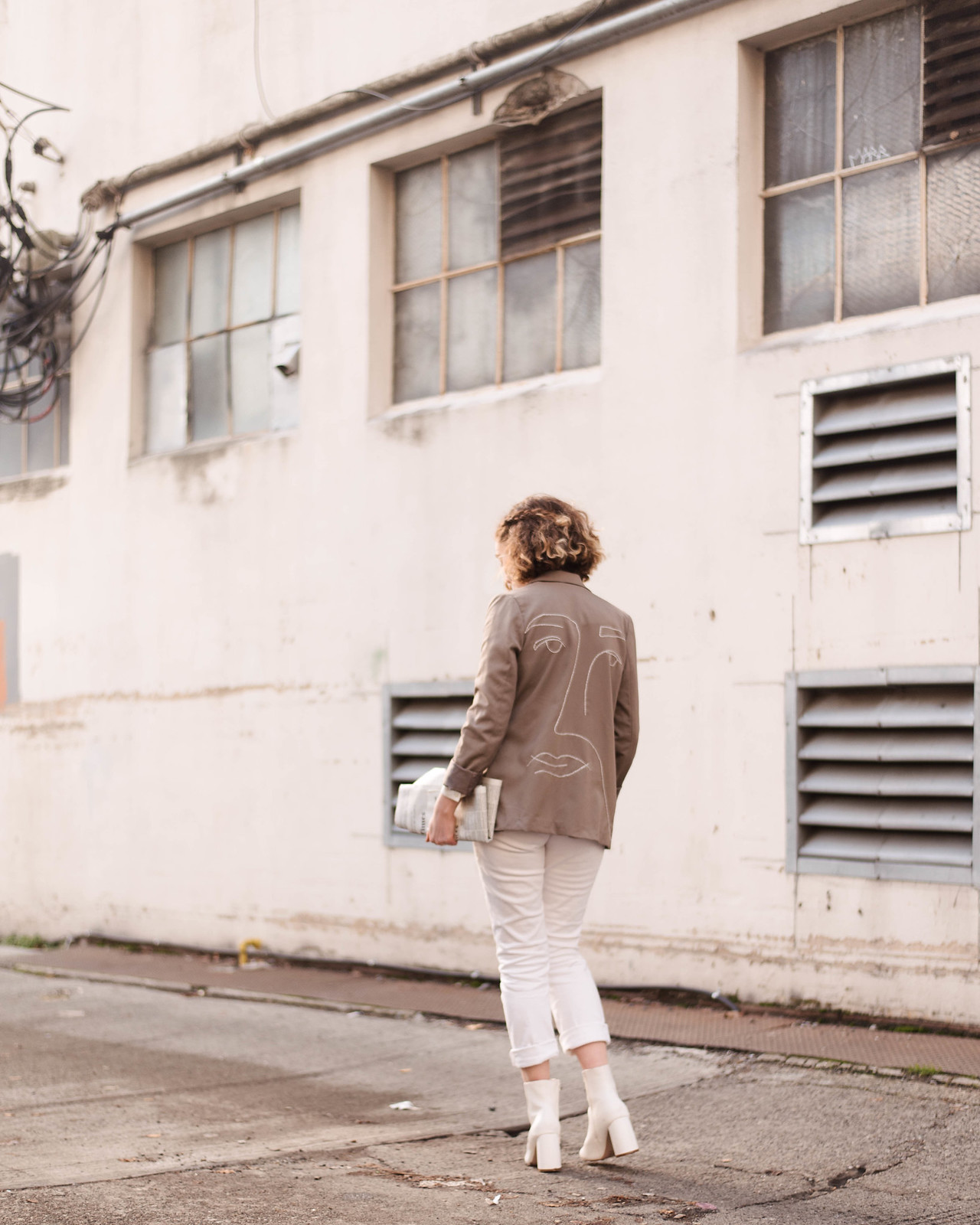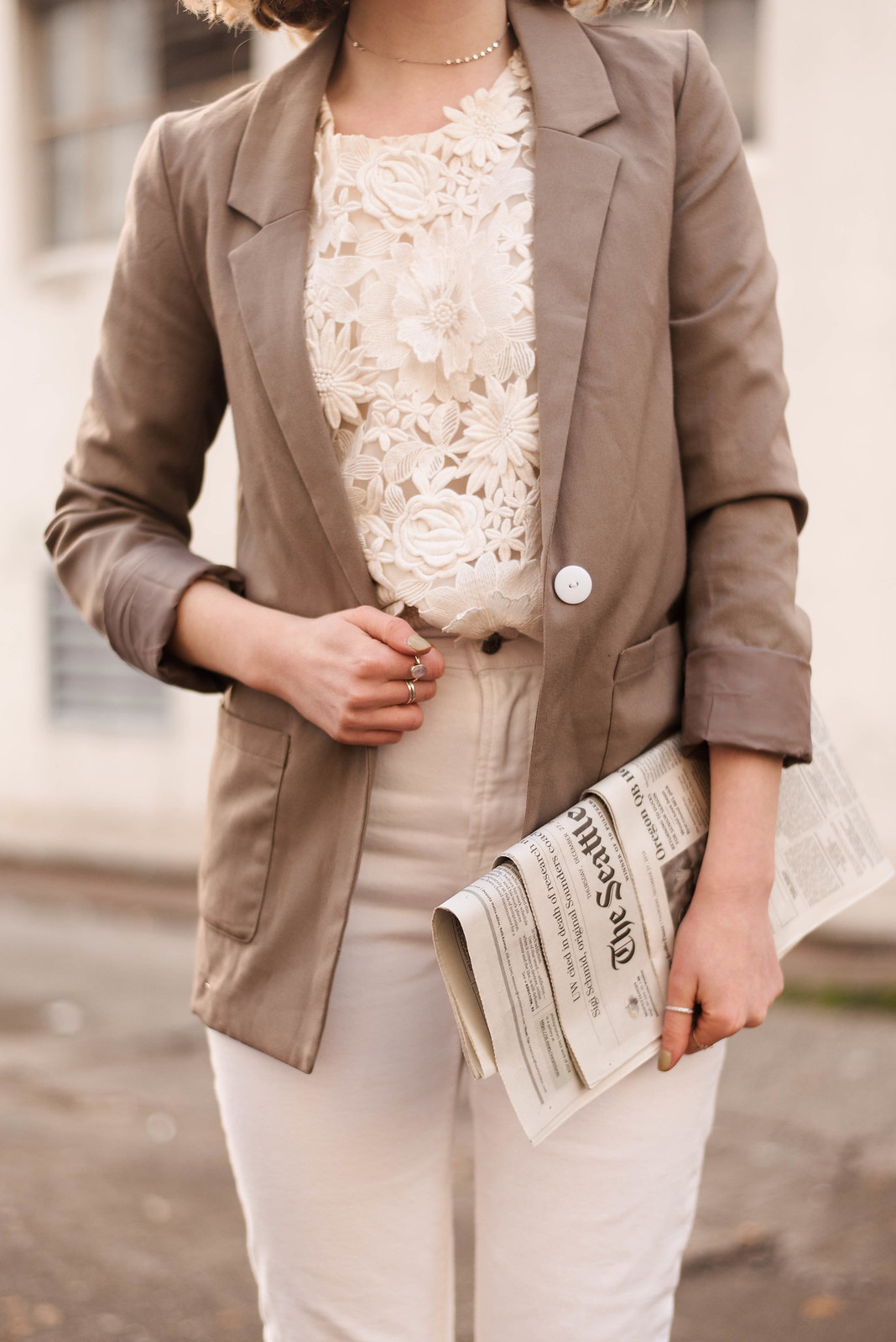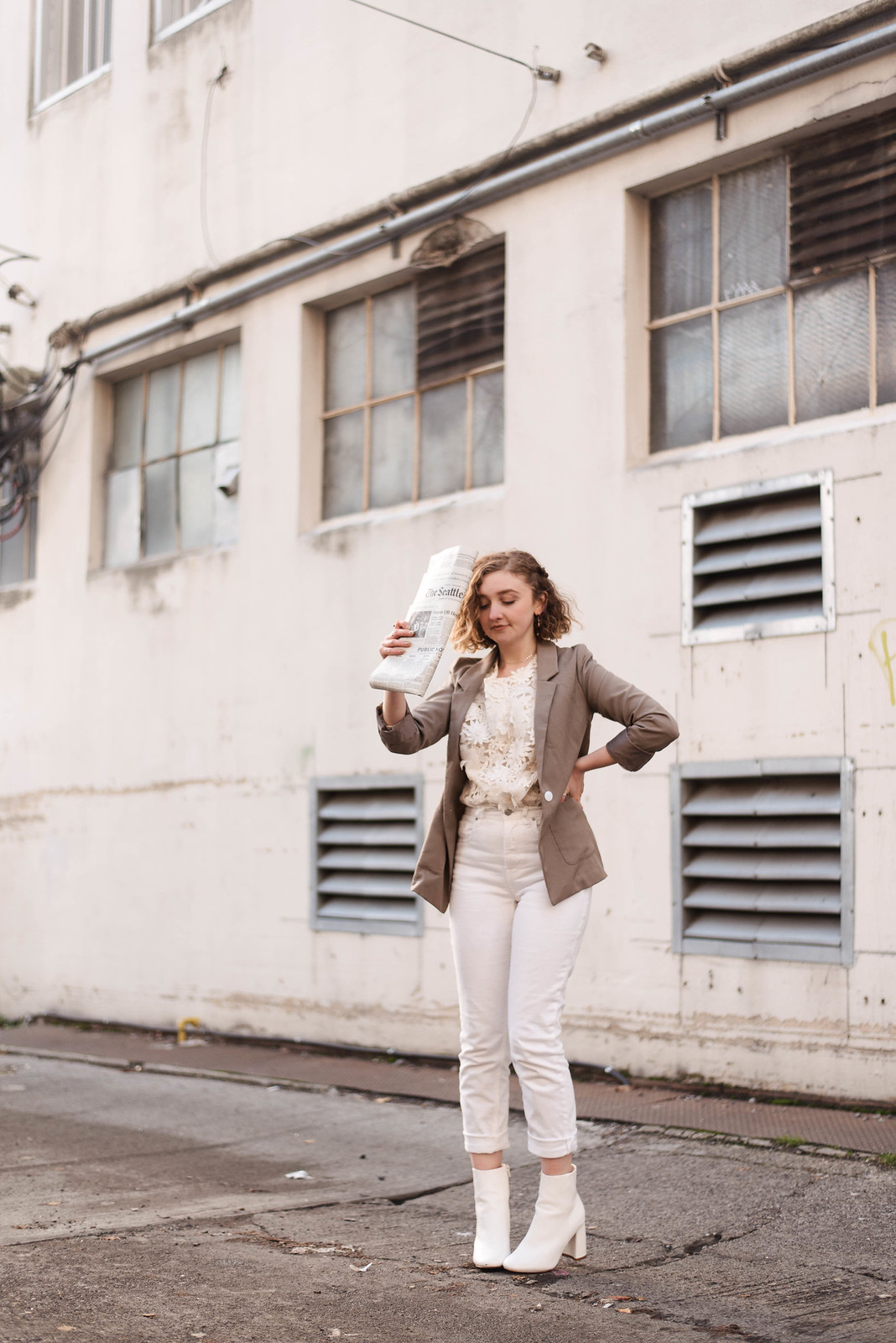
(outfit details; blazer, Jaelle Designs. shirt, thrifted from Goodwill. jeans, Everlane. boots, thrifted from Poshmark. earrings, Machete.)













Let's talk about sustainable and ethical fashion.
I get a lot of questions about this.
What is the distinction between Ethical and Sustainable fashion?
And why is it important?
Here are some stats and facts (boring I know, but SO important. As you read them, let them really sink in!)
Environmental Impacts of Fast Fashion;
- Fast fashion is the third most polluting industry in the WORLD.
- It is the second highest polluter and user of water, 20% of water pollution comes from dyeing textiles.
- Synthetic fabrics (nylon, polyester, acrylic, etc) are made with plastic made from fossil fuels.
- When you wash them, the microfibers in the synthetics are too small to be filtered out, so they end up in waterways and oceans, and are eaten by wildlife.
- Polyester takes 200 years to degrade.
- 2000 different chemicals are used in dyes.
- Production produces greenhouse gases and CO2 emissions.
- 98% of clothing is imported from abroad.
- A single cotton T-shirt transported from Xinjiang, China to Los Angeles results in over 9,000 “clothing miles” and over 2 pounds of CO2 equivalent emissions.
Global Impacts of Fast Fashion;
- Fast fashion is made using sweatshop labor in unethical factories.
- The low prices you pay for clothing = low wages for the humans making your clothing.
- Workers are exploited, verbally and physically abused, they work long hours with little pay in inhumane working conditions.
- Eight years ago the Rana Plaza building in Bangladesh collapsed.
- 1,138 people died and another 2,500 were injured, ( fourth largest industrial disaster ever)
- The Rana Plaza housed brands like; Walmart, Mango, Primark, etc.
- There have been no changes since this tragedy.
- Your favorite brands; H&M, Zara, Urban Outfitters, Victoria's Secret, Adidas, Gap, Forever 21, Uniqlo, Converse, North Face, Calvin Klein, Free People, Anthropologie, Nike, Gap, Madewell, ALL use sweatshop labor.
Social Impacts of Fast Fashion;
- We purchase 400% more clothing than we did 20 years ago.
- With that comes an increase of consumer and throw away culture.
- And the erosion of craft and artisan culture.
- Fast fashion actively participates in appropriation and theft of designs
- And leads to a culture without value.
- We don't pay attention to the PEOPLE behind the clothing we wear. A garments journey doesn't start with the store. It starts with the person making it. It starts with the fabric used to make it.
- Americans throw away 14 million tons of clothing a year. That is 28,000,000,000,000 pounds. I.E. 28 TRILLION pounds.
- 85% of clothing we purchase ends up in landfills.
- However 99% of clothing can be reused, donated, or recycled.
Ethical vs. Sustainable Fashion;
- Ethical Fashion refers to clothing made in way that does not exploit it's workers.
- Whether it is hand made by artisans being paid fair wages, made in an ethical factory (fair wages + safe working conditions), or hand made here in the USA.
- Sustainable Fashion refers to clothing made in an environmentally conscious way. In factories that cut back on emissions and properly dispose of waste. Clothing made using dead stock, recycled, or vintage fabric. Clothing made using natural fibers.


Post a Comment